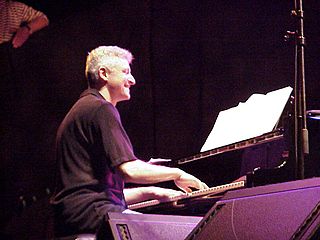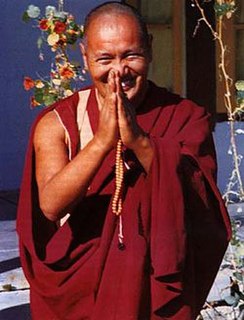A Quote by Anne Waldman
There's a kind of training, when you are sitting in a session in the Japanese tradition or any of the Buddhist traditions, taking your lotus posture or whatever it is. That's what you're doing.
Related Quotes
If you decide to go on a Buddhist path, you have to be careful if you start mixing a lot of different traditions you are not totally familiar with - mixing this kind of meditation with that kind of practice or this kind of visualization with that kind of mantra. Then you really are concocting your own thing, and you have no idea what is going to happen.
I think traditions change and modify with each generation. With new members joining the family, their customs and traditions have to be respected and combined with the exiting traditions. And the children that follow are part of that new evolving tradition and, as they grow, will have input that will, in turn, continue to evolve that tradition.
The Japanese garden is a very important tool in Japanese architectural design because, not only is a garden traditionally included in any house design, the garden itself also reflects a deeper set of cultural meanings and traditions. Whereas the English garden seeks to make only an aesthetic impression, the Japanese garden is both aesthetic and reflective. The most basic element of any Japanese garden design comes from the realization that every detail has a significant value.
One day I saw a picture of the Buddha on a Buddhist magazine and he was sitting on the grass, and he was sitting on the grass, very peaceful, smiling, and I was impressed. Around me people were not like that, so I had the desire to be someone like him. I nourished that kind of desire until the age of sixteen, when I had the permission from my parents to go and ordain as a Buddhist monk.
If you are training properly, you should progress steadily. This doesn't necessarily mean a personal best every time you race ... Each training session should be like putting money in the bank. If your training works, you continue to deposit into your 'strength' account ... Too much training has the opposite effect. Rather than build, it tears down. Your body will tell when you have begun to tip the balance. Just be sure to listen to it.







































